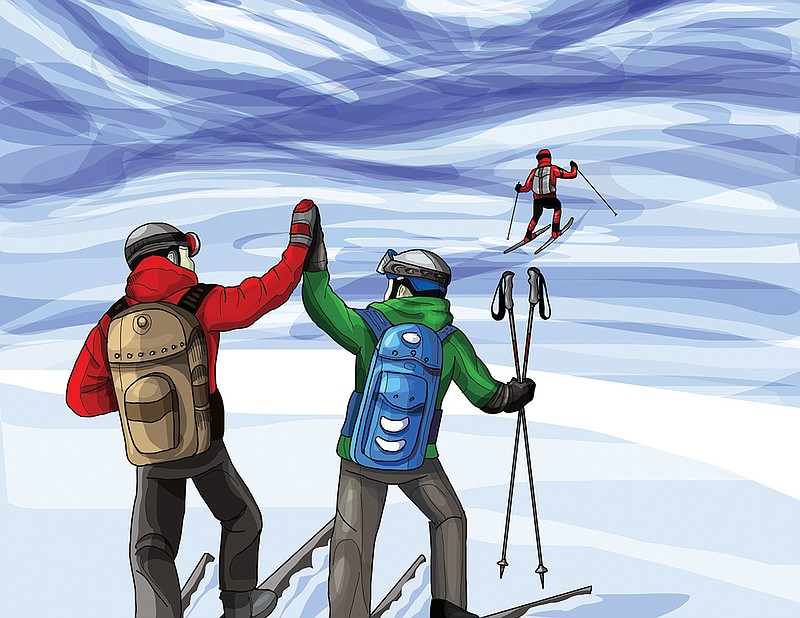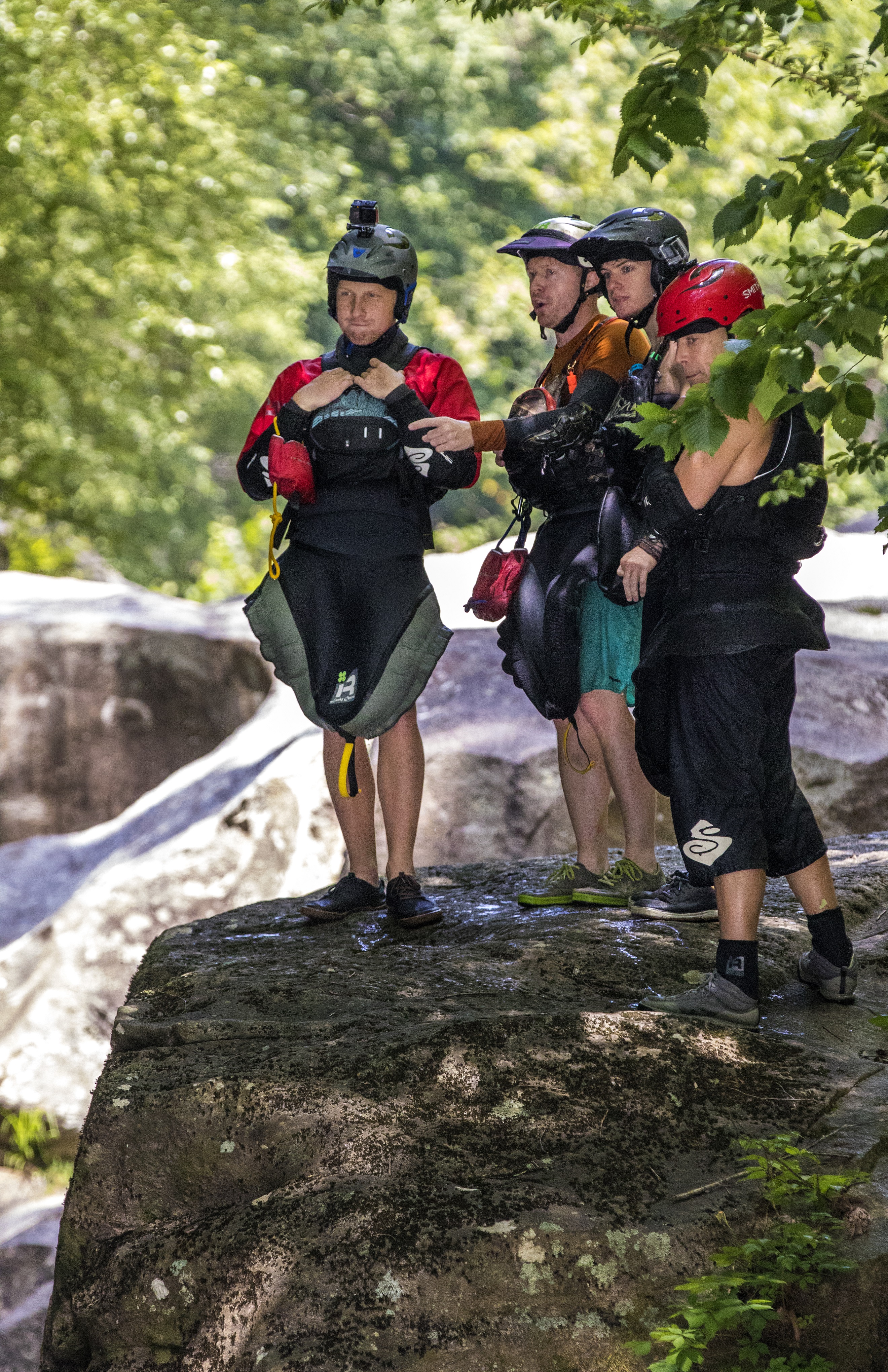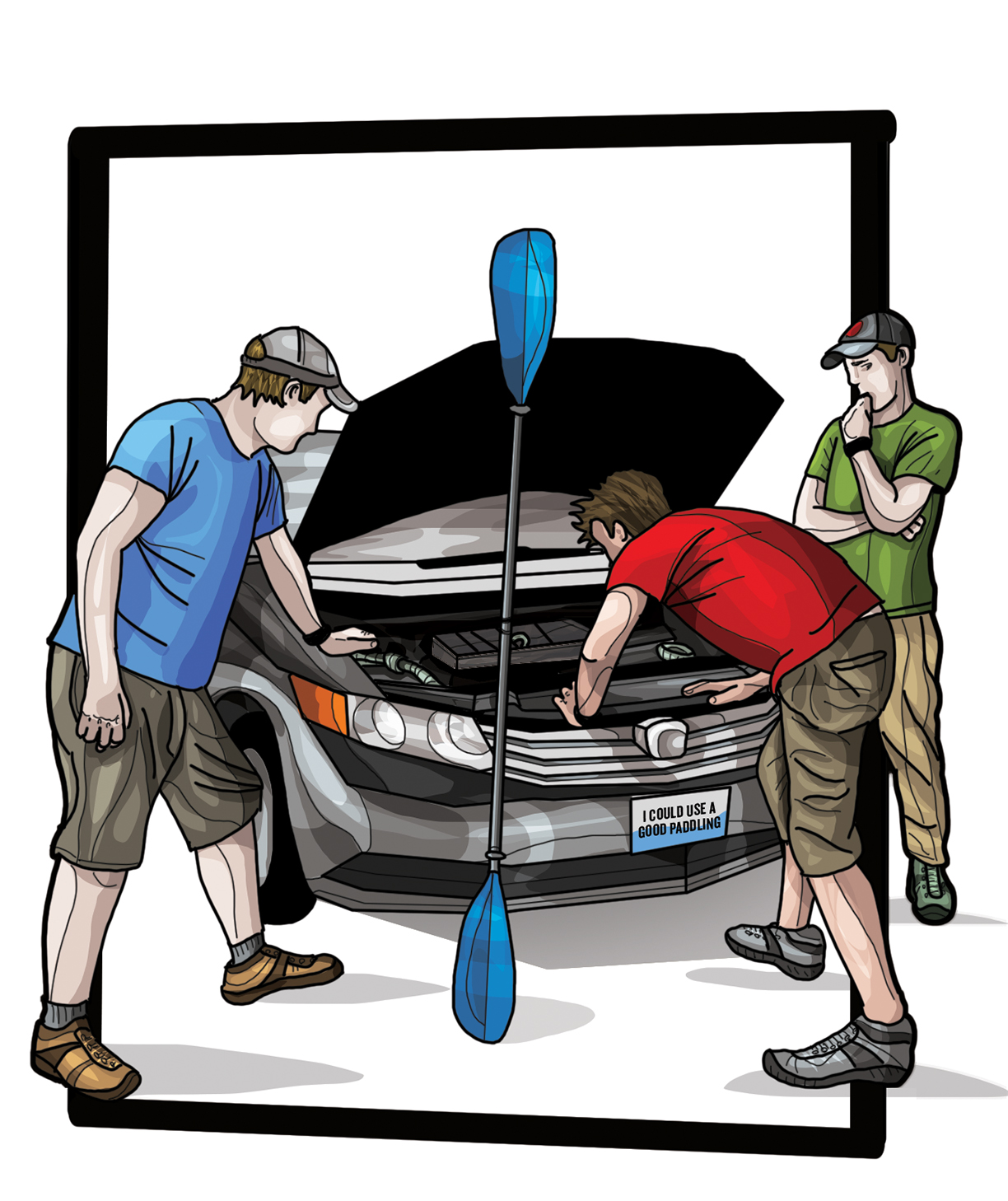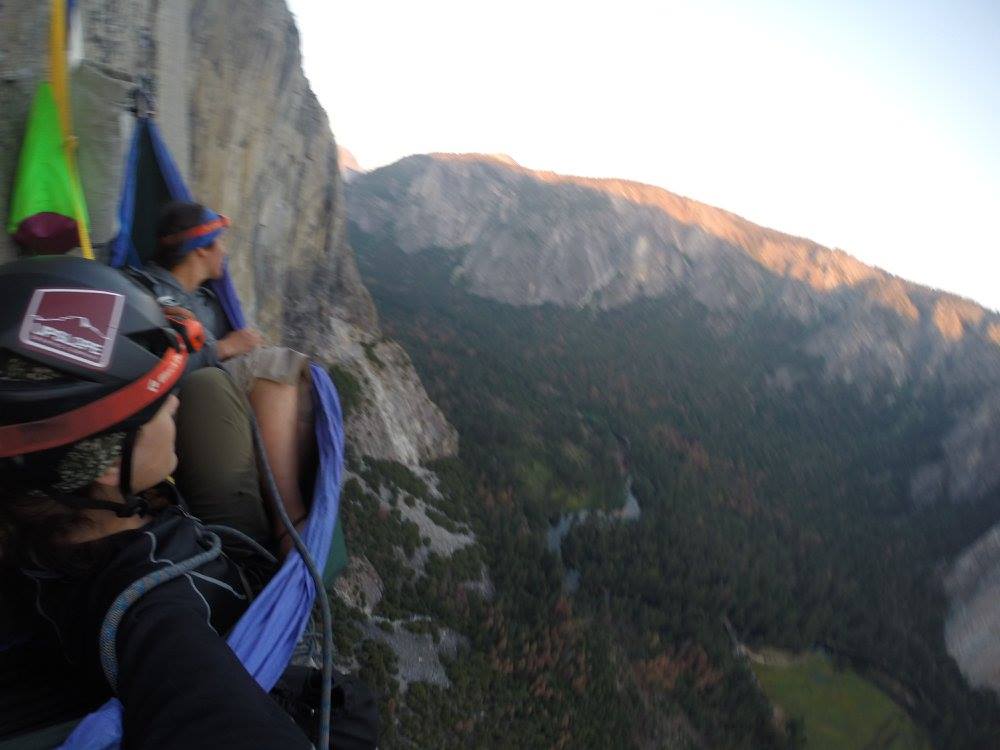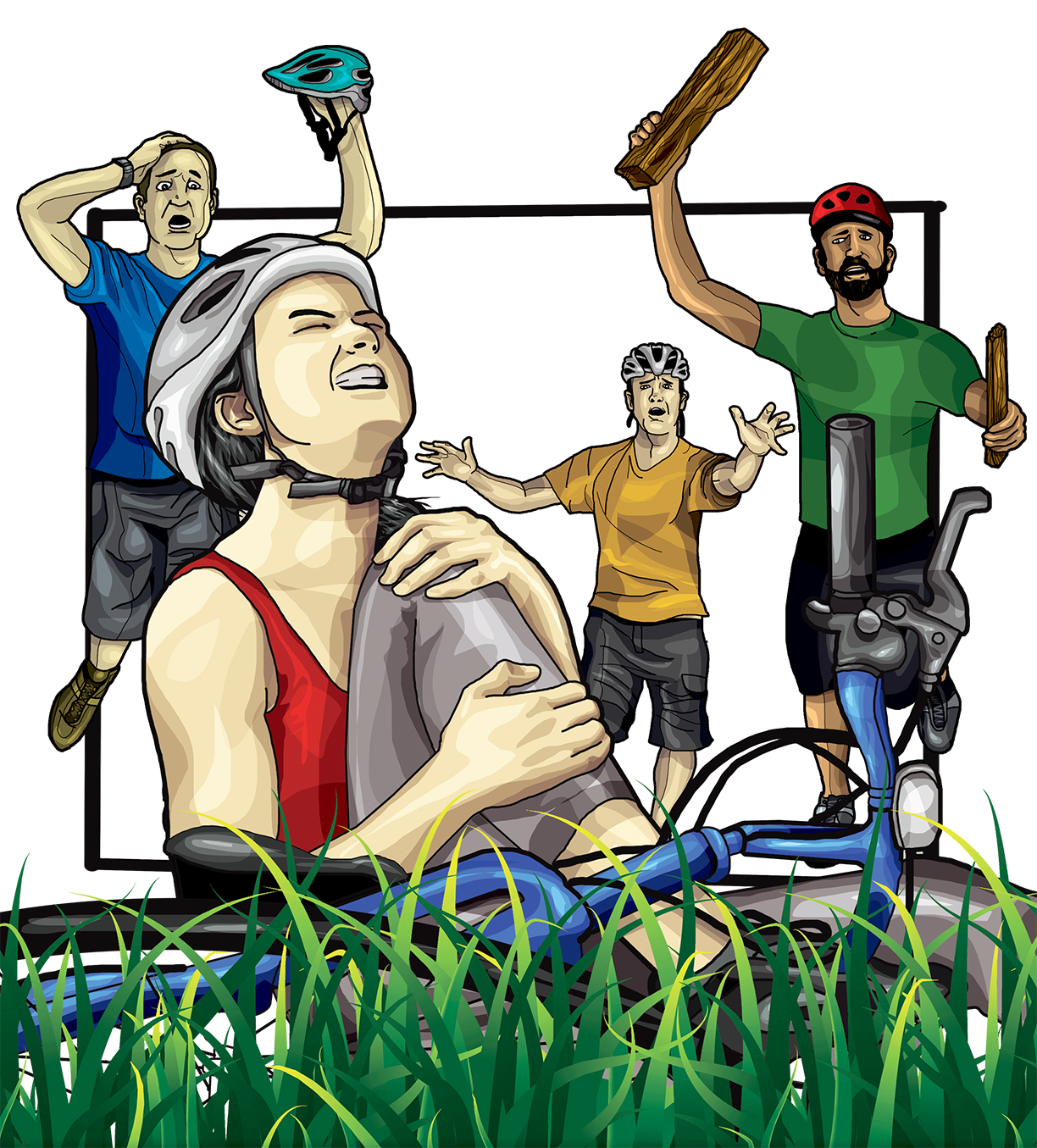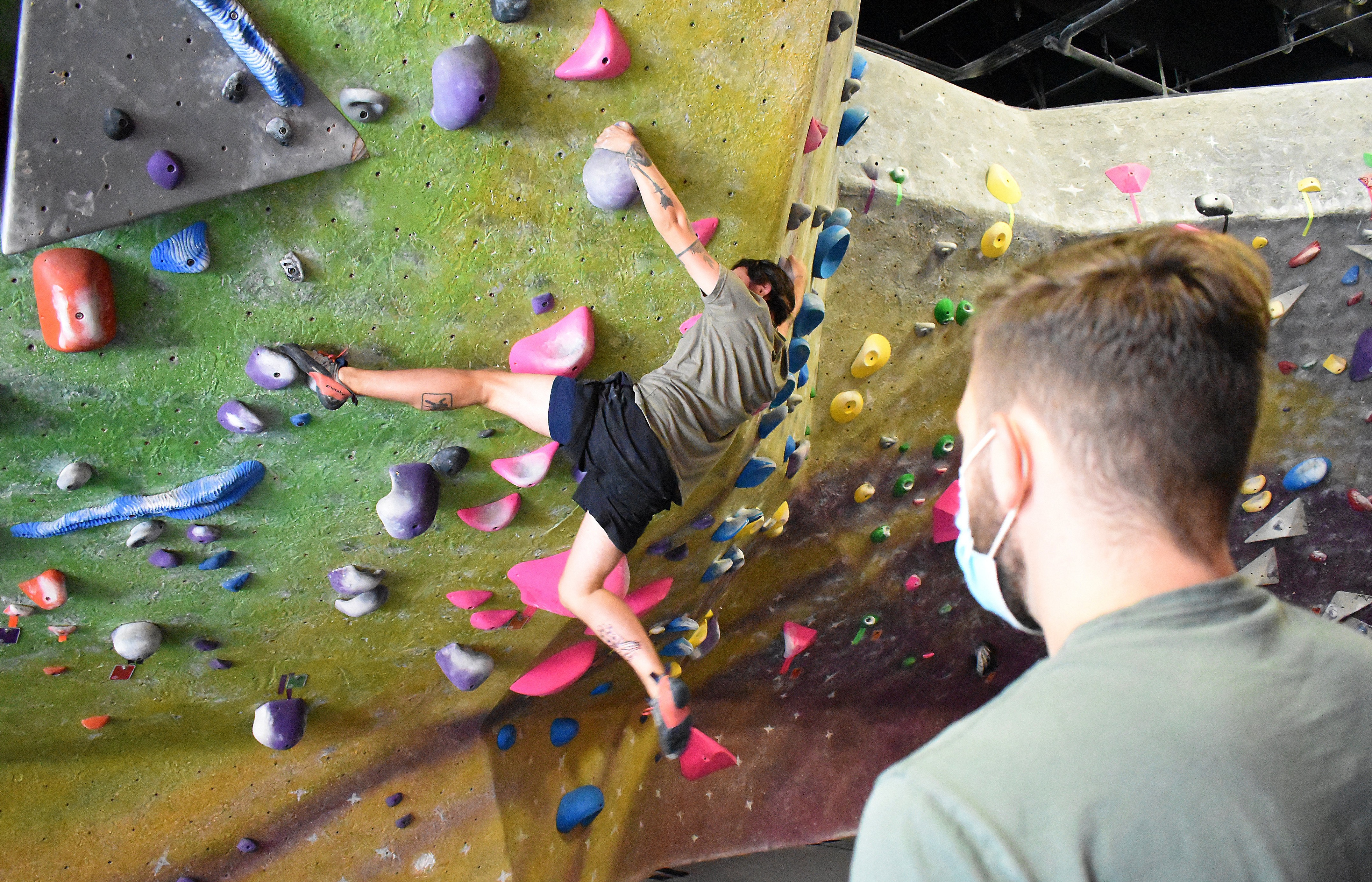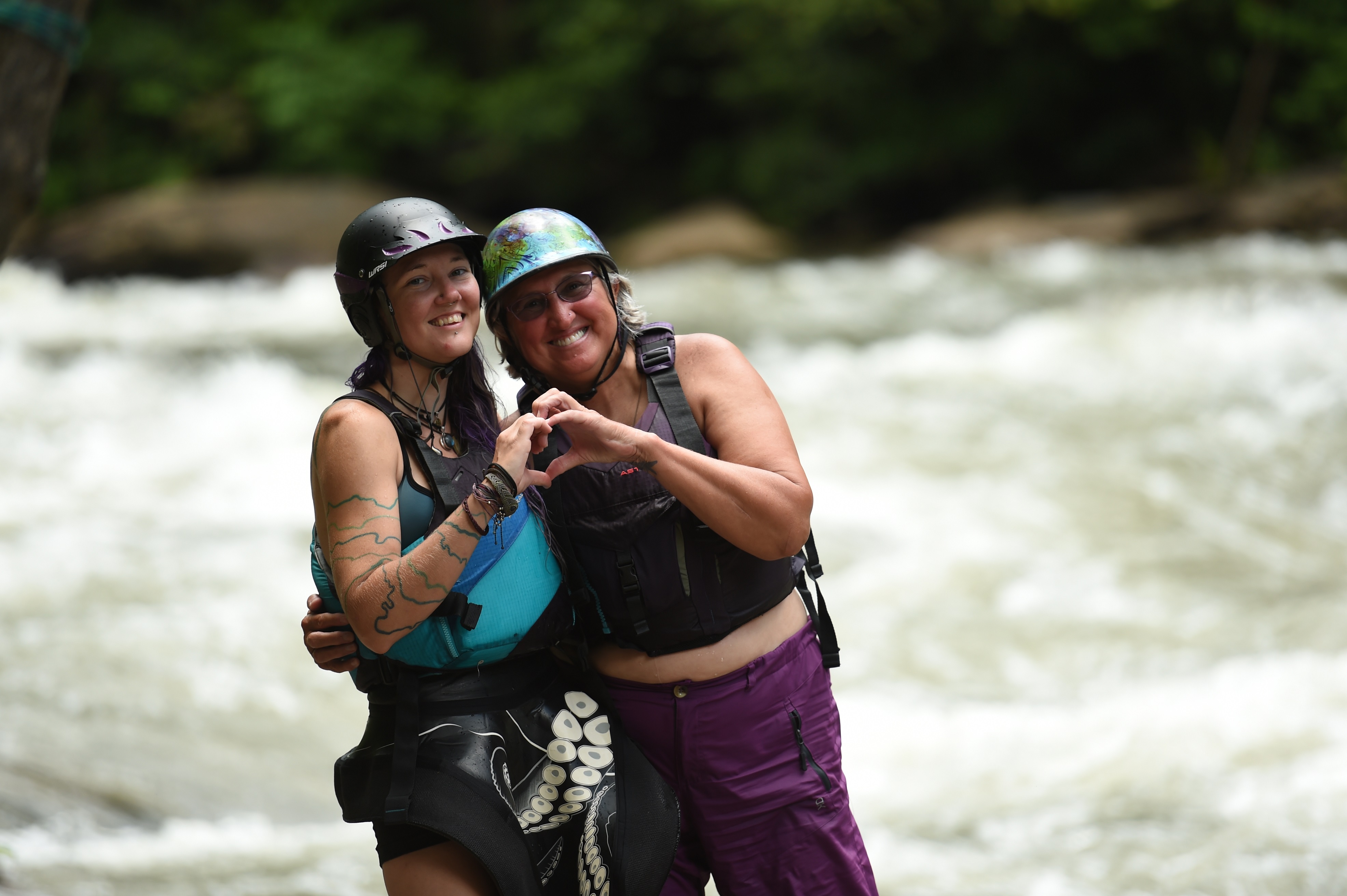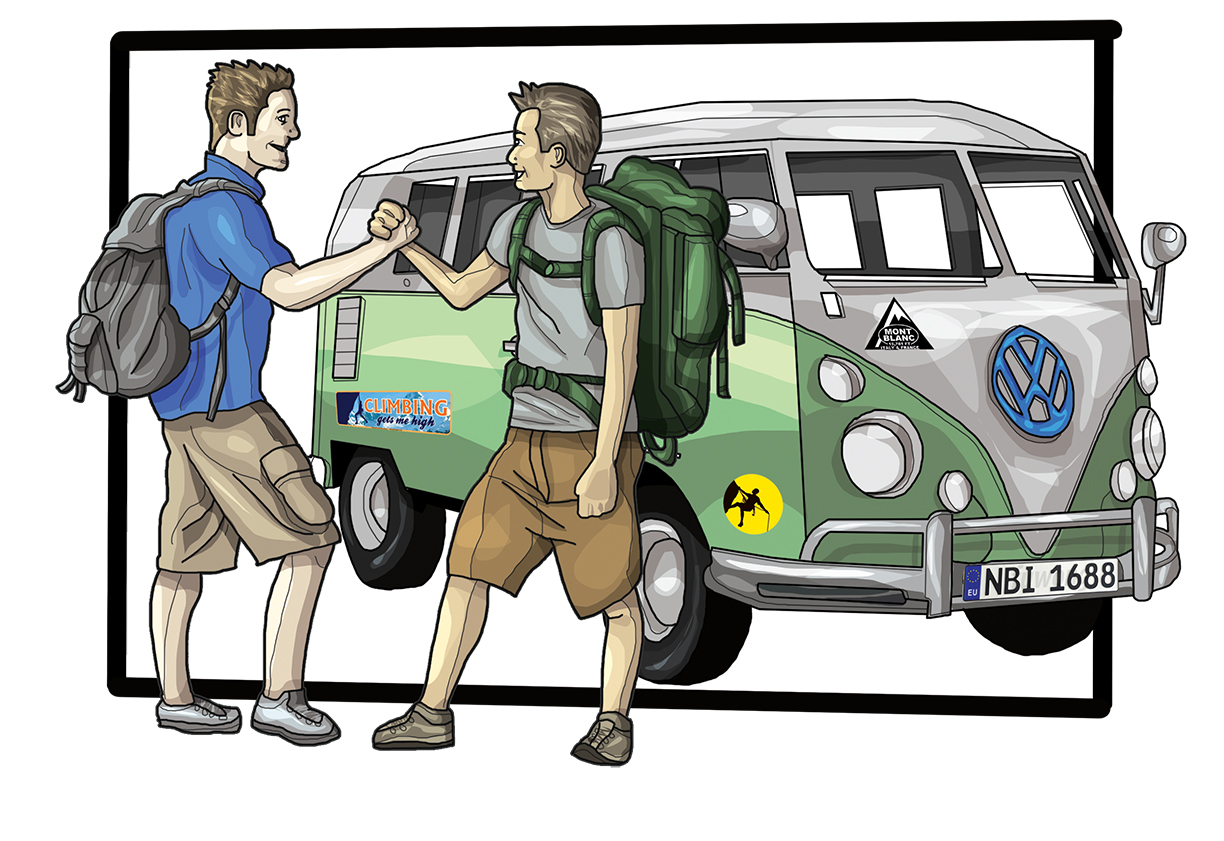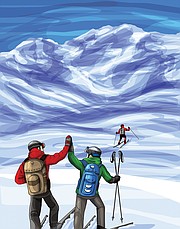The sign at the gate recommends bringing a beacon, shovel and probe - essential tools for avalanche rescue. It also recommends bringing a partner so there is someone there to do the rescuing.
I shoulder my pack with my skis attached and look back at my student. William, age 12, is fumbling with the straps that will secure his skis to his pack. I wait patiently, trying to ignore the cold wind whipping me in the face.
"Ready?" I ask. He nods, and we begin to hike past the sign, through the gate and into the Headwaters.
The Headwaters is special-access terrain in Montana's Big Sky Resort. Hiking the Headwaters means choosing to be exposed to certain risks. The hike itself is a narrow, treacherous path along a knife-edge ridge. Many of the routes are "no-fall zones," meaning that a fall there could lead to a lengthy hospital stay - or worse. But the payoff is immense. Skiers live for fresh, untracked snow, and because of its location and difficulty, the Headwaters often has great snow days after a storm.
I am leading William down one of my favorite lines in the Headwaters when the unthinkable happens. William skis over a rock, loses a ski and begins to tumble down the narrow chute surrounded by cliffs. It's over almost as quickly as it started.
William kicks his remaining ski into the snow and self-arrests, just like we'd practiced.
With him safe, my focus shifts to his lost ski, which is augured into the snow 20 feet above me on a 40-degree slope. I begin the exhausting process of climbing back up to retrieve it when I see someone peering over the crux of the run.
"Hey!" I yell, "Can you grab that ski?"
The man nods, and before I know it this stranger is sitting on the snow helping William click into his ski. After exchanging a few words, the stranger begins skiing again and soon disappears into the clouds below.
My interaction with that man lasted about a minute, but it left a lasting sense of gratitude.
When we play in the wilderness, whether on remote mountaintops, on rivers in otherwise inaccessible gorges, or high on sheer cliff faces, we tread an often thin line between success and failure; life and death. Bad decisions can have worse consequences, and simple mistakes or just ordinary bad luck can quickly escalate into a fight for survival.
Mistakes happen. Bad luck happens. And we've all made mistakes. We've all been unlucky.
One of my favorite aspects of the outdoor community is its compassion and culture of helpfulness. That day on the Headwaters, that stranger didn't think twice or hesitate to help. He just did what was needed to fix an unlucky moment.
The people that we choose for our adventure buddies become more than friends. They become family. We rely on them for safety at the bottom of deadly rapids, to belay us on climbs and to find us if we are buried by an avalanche.
They help us learn as teachers and students. They help us grow as adventurers and human beings.
The empathy and compassion I feel for my close outdoor family radiates out into the outdoor community as a whole. We as a community are like an unruly, sometimes smelly, extended family. We help each other because we've all been there - we've all been cold or scared or hurt and had a friend or stranger's kindness make all of the difference.
It could be as simple as helping to retrieve a ski or as complex as evacuating an injured person, but in the outdoor community, we are all family and we help each other.
We asked other extreme athletes to share anecdotes illustrating the camaraderie they've found in their sports. Here, paddlers, climbers, mountain bikers and ultra runners tell their stories.
*****
Ben is ready for the Green River Narrows; probably has been for a year. But asking someone to take your child (age 17) down a class V run is not a request one makes lightly. The unspoken understanding is you are asking someone to shepherd your child down a path where terminal outcomes, albeit unlikely, are a reality. "Trust" just doesn't seem to be a strong enough word to describe the verbal contract being made in this moment.
I decided to reach out to those who knew this river best. Some knew me, some knew Ben, but others did not.
I won't lie, it took a bit of soul searching before I could press the "send" button on that message.
The outpouring of support to bring about this adventure for Ben, quite frankly, blew me away.
Within minutes, one of the paddlers I have never met (we have been Facebook friends for a few years) raised her hand and said she would love to help make this happen. As I was responding to this generous offer, a few other responses popped into my inbox, all offering their assistance. The care, enthusiasm and support were clear reminders of how special this fraternity of paddle-wielders is.
As it happens, Ben ran the Green this past week under the guidance of two paddlers who delivered an experience he will talk about for the rest of his life.
This is just one of many examples of why I love this community of paddlers and know, without a doubt, it is a tribe I want to be a part of. When it comes right down to it, what more could you want for in life than to be surrounded by a family who inspires you to chase bigger and steeper waters with the confidence they are always right there in the eddy beside you?
- Rob Giersch, kayaker, age 56, Atlanta, Georgia
*****
I once had vehicle issues after guiding [on the Pigeon River]. A kayaker I barely knew called a guide I didn't know, who offered to drive me to the AutoZone in town. Then, when my [rafting] company got off the river, a group of them spent literal hours helping me get [my car] fixed.
- Matthew Jackson, kayaker, age 27, Asheville, North Carolina
*****
[In 2016,] I attempted to climb The Nose on El Capitan [in Yosemite National Park] for the first time with my climbing partner and best friend, Annabelle McClure. After three days of climbing and two nights of sleeping on the wall, we decided to bail. We spent the night in a hammock above the boot flake and called our friend to let him know.
The next morning, we woke up and began our descent. I began to lower our haul bag, when our systems failed and the bag went flying.
I attempted to grab the rope to slow it down and got second-degree burns on my left hand.
The bag was still attached to our systems, and after a long period of high-frequency buzzing in my head and screaming, the pain subsided enough that I could rappel. We rappelled the remaining 16 pitches that we had climbed, making it to the ground in the evening.
Our friend met us there with two more friends he met [at camp]. They carried our gear to the car and drove us back to camp.
At camp, all I wanted was beer, food and to sleep on the ground. There were about 30 people in camp and we walked up with our tails between our legs after bailing.
All of a sudden, everyone began to surround us with cheers and applause. I turned to a stranger next to me and said, "Why is everyone cheering? Do they know that we bailed?" She responded, "Yes, but it's amazing that you girls tried and you got down safely. That's what matters."
- Andrea Hassler, climber, age 32, Chattanooga, Tennessee
*****
I had a terrible [mountain biking] wreck in February 2020, ending up breaking my tibia.
Prior to the break, everyone was encouraging me to keep pushing and trying to clear this big step-up.
On the last run, my foot ended up slipping off the pedal. Soon as I wrecked, I was terrified, knowing exactly what had happened.
Next minute I know, I have maybe 10 people surrounding me. One of them broke some wood pieces off a fence and took their shirt off to stable my leg. They then all carried me out and a person I had just met that day drove me to the hospital. Even after several weeks they were constantly checking in on me.
- Alyson Johnson, mountain biker, age 25, Chattanooga, Tennessee
*****
I am a proud trans climber living in Chattanooga. One of the scariest moments in my life was coming out to my boss and co-workers [at High Point Climbing and Fitness]. I loved all of them and did not want to change anything, but also feared losing them.
I remember walking into the office to speak to the general manager at the time, Phil Purney, and asked to talk. I took a deep breath and told him I was changing my name from Kelsey to Kelso and was starting transitioning from female to male.
Without hesitation, he looked at me and said, "OK. You are a valuable member of our team and High Point will always be here for you. You can count on me and all of us. What can we do to help you and respect you?"
We began working on a plan together to tell my co-workers, and he immediately made me feel that nothing was changing.
I did chicken out coming out to my co-workers during the staff meeting, so I ended up sending an email. [Afterward] I started to receive text messages from all my co-workers [that said] nothing had changed, and if I need anything, they would be there for me.
The climbing community has shown me that family does not always have to be blood.
- Kelso Cook, climber, age 24, Chattanooga, Tennessee
*****
For years now I've regularly been asked If I had met "Purple Sally." When we finally met, she instantly claimed me as her "river daughter." It's totally silly to everyone on the outside, but when your bio fam sucks, having a sweet woman claim you as hers simply because your hair [matches] and you both paddle is pretty magical.
- Courtney Marbry, kayaker, age 34, Atlanta, Georgia
*****
Last spring, my two running buddies took on a super-long race with not much time to prepare, and came away with injuries. A few weeks later, we all raced a three-day weekend of stage races together. By day three, their injuries were flaring back up and they had spent the evening buying more braces for their knees and ankles to push through.
On the last day, at the end of the race, I made a wrong turn and added a few miles to my race. [Then, I] ran out of fluids and got dehydrated - with a monster climb left between me and the finish.
I called my buddy Matthew [who was already] at the finish line to see if anyone could head down with some water. He told me that he and Corey had taken off their braces and collapsed. I told him not to worry. But when I started throwing up, [I] got scared and called again.
When he heard my voice, I heard him tell Corey, "Put your braces back on."
It humbled me to think of the pain they were about to put themselves through to come back and help.
Running friends are the best friends, and we all accomplished goal No. 1: Finish upright with a smile.
- George Hambrick, ultra runner, age 37, Tullahoma, Tennessee
*****
I was lucky enough to get to travel in Europe after college and climb in France and Italy. Every crag and boulder field I went, climbers were so quick to extend a warm welcome and share whatever they had - food, a place to crash, a ride, beta for a climb, some amazing local cheese.
I bumbled around most of the time, and I wouldn't have made it half as far if it wasn't for the incredibly hospitable climbers who took me under their wing.
In the sandstone boulders of Fontainebleau, a Frenchman dragged me along his after-work circuit of problems, pointing out moves and subtle beta on each problem. We didn't talk much, but we had a blast climbing together.
In northern Italy, a climber I'd only just met invited me on a weekend trip. He told me what train to take and when and said he'd pick me up. Despite some doubt, I went for it and took a train overnight.
True to his word, I found my new friend waiting to pick me up in a VW bus. I jumped in and away we went for a few days of sport climbing in some deep limestone valleys of northern Italy.
That trip taught me that climbing is an international language. Wherever you are, if there's climbing nearby, you'll have family.
- Zachary Lesch-Huie, climber, age 39, Chattanooga, Tennessee
